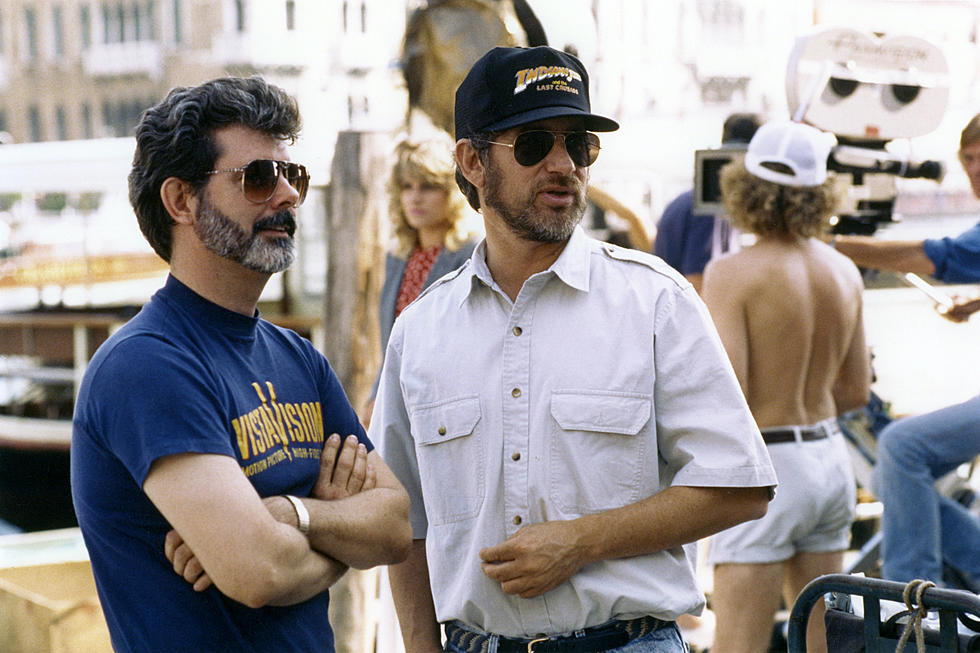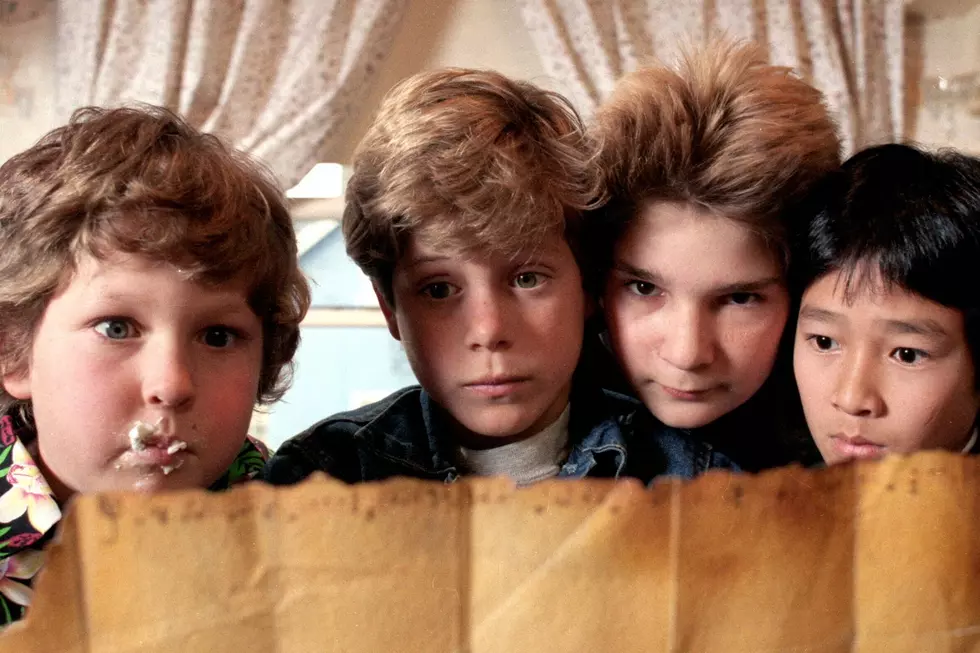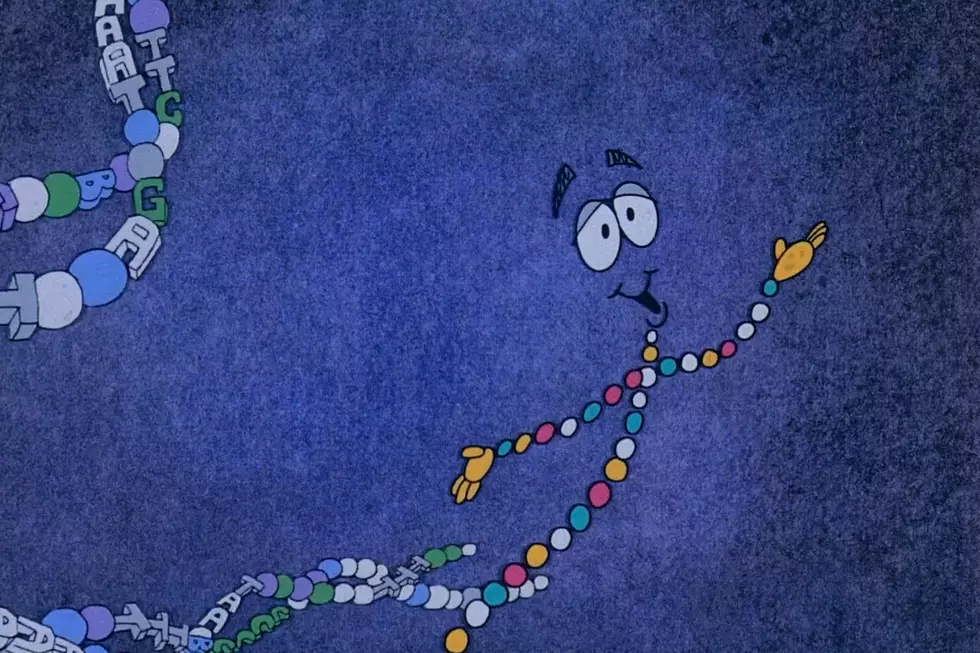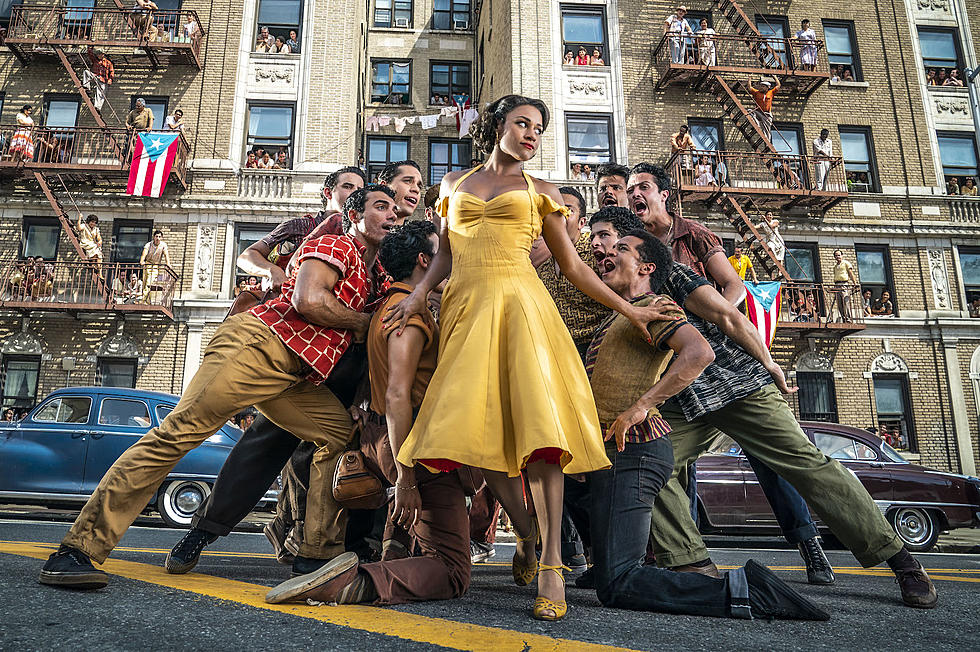
Steven Spielberg and George Lucas Predicted the World of Streaming Movies in 1990
“At Amblin, storytelling will forever be at the center of everything we do, and from the minute Ted [Sarandos, Netflix Co-CEO] and I started discussing a partnership, it was abundantly clear that we had an amazing opportunity to tell new stories together and reach audiences in new ways.”
Those were the words of Steven Spielberg on the announcement that his production company, Amblin Partners, had signed a deal with Netflix that “will cover multiple new feature films per year.” Spielberg has yet to direct a film for streaming, and he hasn’t committed to direct one for Netflix yet, at least not publicly. Still, the partnership between Netflix and Spielberg is interesting for a variety of reasons, including the fact that as far back as 1990, Spielberg and his longtime friend and colleague, George Lucas, essentially predicted the rise of Netflix and the world of streaming movies they pioneered.
Spielberg and Lucas are obviously very smart filmmakers and businessmen, and their predictions about Hollywood and the movie industry are often covered in the film blogosphere. In 2013, The Verge reported on a panel at the University of Southern California where they predicted an “implosion” among the studios after the failures of several “mega-budgeted” movies. They further expected this crash to leave the landscape with “fewer theaters” which would also be “bigger...with a lot of nice things. Going to the movies is going to cost you 50 bucks, maybe 100 ... and that's going to be what we call ‘the movie business.’ But everything else is going to look more like cable television on TiVo.” Lucas added that “it’s not going to have cable or broadcast. It’s going to be the internet television.”
After the pandemic hit, Spielberg and Lucas’ 2013 comments were cited as predicting the state of the film world at the tumultuous start of the 2020s, where theaters offer upscale luxuries like adjustable recliner seating and table-serve food and drinks, and more and more small and mid-level movies are being shunted to streaming services like Peacock, Paramount+, and HBO Max. Spielberg and Lucas got almost all of that right. No one seemed to notice, though, that 2013 wasn’t the first time Spielberg and Lucas predicted these same massive upheavals in the film industry. In fact, the rise of what Spielberg and Lucas called “internet television” is something they saw coming even before the internet fully existed.
In 1990, Spielberg, Lucas, and Martin Scorsese participated in a project called The Future of the Movies. It arose out of an event they attended together in 1989. At a bar after an anniversary celebration for the American Film Institute, film critics Roger Ebert and Gene Siskel found Lucas, Scorsese, and Spielberg sitting around discussing The Film Foundation, the group Scorsese had recently created to preserve classic cinema. All five men all agreed to make a television special and a book titled The Future of the Movies that would address the Film Foundation’s mission to protect old movies, and consider what the broader future of the film industry might look like. Royalties from sales of The Future of the Movies book would be donated to the Film Foundation to further its mission.
The book itself, which is long out of print, is a slim volume consisting of three longform interviews with each of the three directors. Siskel talks to Spielberg, Ebert questions Lucas, and the two critics speak to Scorsese together. All three interviews are insightful conversations about the directors’ respective careers, and their views on Hollywood and cinema. But it’s Spielberg and Lucas who make the most prescient remarks about where “the future of the movies” is headed.
For example, when Siskel and Spielberg discuss the magic of the theatrical experience, and Spielberg insists that watching movies at home “will never be the same” as watching them on a big screen in the dark with strangers, Siskel asks him about the future of “direct projection” of movies in the home. To which Spielberg replies:
There will be because they’ll be made-for-home movies, the same way there’s made-for-television movies. A lot of movies in the future will be made high definition, bypassing film and the process of the chemicals in film, and right onto cassette, right into an HDTV receiver. And it’s going to look good, I guess, but it’s not going to be film. It’s not going to be grainy. It’s not going to have a tactile vibration to it. Hopefully it’s just going to be good storytelling by a different process.
Spielberg understood that high-definition TVs, still in their infancy in 1990, would reshape home viewership. (The first consumer-grade HDTV sets were still about eight years away when the interview was conducted.) He also recognized that the movies themselves would be shot on HD instead of film, and that HD would look great, even as it lacked the grain and texture of film.
Lucas showed even more foresight in his conversation with Ebert. When their interview turned to the topic of high-definition televisions, and Ebert asked what might compel someone to venture to a theater when they have an HD screen at home, Lucas pretty much made the exact same prediction that he made in 2013 some 23 years earlier:
I think the marketplace will shift dramatically in that situation. I think certain kinds of movies will be made directly for the home and certain kinds of movies will be made for theater presentation ... the larger, more spectacular ones will end up in the theater and the more personal ones will end up on the screen. Which is good, because it will allow more esoteric movies into the marketplace. We’re in a period now where the industry is such that they are going toward a higher end king of movie, and the high-risk movies are not getting a lot of play now. And that’s real unfortunate.
Lucas believed that premiering “personal” movies at home was a good thing. He argued that “it will allow more esoteric movies into the marketplace.” If you consider the number of indie and arthouse films that have found a home on streaming, he wasn’t far off — even if the streaming productions that tend to get the most attention online are the theatrical castoffs and nostalgia-driven reboots.
So Spielberg and Lucas had this stuff pegged while Blockbuster was still the dominant force in home video. Someone should ask them what 30 years from now will look like. They might have some good investment ideas.
10 Mandela Effects From the World of Movies
More From Awesome 98










